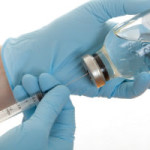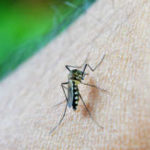Essential Summer Health Checks: What to Watch Out For
Summer is a season of fun, sun, and outdoor activities, but it also brings unique health challenges. As temperatures rise, our bodies undergo various changes, and it’s crucial to stay vigilant about our health. Here are some essential summer health checks to ensure you stay healthy and safe during the hottest months of the year.
Hydration Levels
One of the most important aspects of summer health is maintaining proper hydration. The heat increases our body’s need for water, and dehydration can lead to serious health issues like heat exhaustion and heatstroke. It’s essential to drink plenty of fluids, especially water, throughout the day. Be mindful of the signs of dehydration, such as dry mouth, dark urine, dizziness, and fatigue. Always carry a water bottle, and consider adding electrolytes to your drinks if you’re engaging in strenuous activities.
Skin Protection
Summer sun can be harsh on your skin, increasing the risk of sunburn and long-term damage such as skin cancer. Applying a broad-spectrum sunscreen with at least SPF 30 is a must. Reapply every two hours, or more often if you’re swimming or sweating. Wear protective clothing, hats, and sunglasses to shield your skin and eyes from UV rays. Regularly check your skin for any new moles or changes in existing ones and consult a dermatologist if you notice anything suspicious.
Heat-Related Illnesses
The risk of heat-related illnesses rises with the temperature. Heat exhaustion and heatstroke are serious conditions that require immediate attention. Symptoms of heat exhaustion include heavy sweating, weakness, cold and clammy skin, a fast and weak pulse, nausea, and fainting. Heatstroke is more severe and can be life-threatening, with symptoms like a high body temperature, hot and dry skin, a rapid and strong pulse, confusion, and unconsciousness. Prevent these conditions by staying cool, avoiding strenuous activities during peak heat, and taking frequent breaks in the shade or air-conditioned areas.
Allergy Management
Summer is also a peak time for allergies, with pollen levels soaring. Allergies can trigger symptoms such as sneezing, runny nose, itchy eyes, and respiratory issues. Keep an eye on pollen forecasts and limit your time outdoors on high pollen days. Use air purifiers in your home and keep windows closed to reduce indoor pollen. Over-the-counter antihistamines can help manage symptoms, but consult with a healthcare provider for severe allergies.
Food Safety
Picnics, barbecues, and outdoor dining are summer staples, but they also come with a higher risk of foodborne illnesses. Bacteria thrive in warm temperatures, so it’s crucial to handle food safely. Keep perishable items refrigerated or in a cooler with plenty of ice. Cook meats to the appropriate internal temperatures, and avoid leaving food out in the sun for extended periods. Wash your hands thoroughly before and after handling food, and be cautious with raw or undercooked dishes.
Eye Health
The bright summer sun can be damaging to your eyes. Prolonged exposure to UV rays can increase the risk of cataracts and other eye conditions. Wear sunglasses that offer 100% UV protection and consider wearing a wide-brimmed hat for additional shade. If you spend a lot of time outdoors, especially on the water or sand, which can reflect sunlight, ensure your eye protection is adequate.
Insect Bites and Stings
Summer is prime time for mosquitoes, ticks, and other insects. These pests can carry diseases like Lyme disease, West Nile virus, and Zika virus. Use insect repellent containing DEET or other EPA-approved ingredients. Wear long sleeves and pants when in wooded or grassy areas, and check your body for ticks after spending time outdoors. If you get a bite or sting, monitor it for any signs of an allergic reaction or infection, such as increased redness, swelling, or pain.
Physical Activity Safety
Summer is perfect for outdoor sports and activities, but it’s important to exercise caution. The heat can exacerbate the risks associated with physical exertion. Choose cooler times of the day, such as early morning or late evening, for your workouts. Wear light, breathable clothing, and don’t forget to stretch properly before and after activities to prevent injuries. Stay hydrated and listen to your body—if you feel dizzy or overheated, take a break immediately.
Mental Health Check
Summer can affect your mental health in various ways. The pressure to be active and social can be overwhelming for some, leading to stress and anxiety. Ensure you’re taking time for yourself and balancing social activities with periods of rest. Practice mindfulness and consider spending some time in nature, which has been shown to improve mental well-being. If you’re feeling persistently anxious or depressed, don’t hesitate to seek professional help.
Chronic Condition Management
If you have a chronic condition like diabetes, asthma, or heart disease, summer can present additional challenges. High temperatures can exacerbate these conditions, so it’s vital to monitor your health closely. Follow your treatment plan, keep medications at the correct temperature, and stay in regular contact with your healthcare provider.
By staying vigilant and proactive about these essential summer health checks, you can enjoy all the season has to offer while keeping yourself and your loved ones safe and healthy. Remember, prevention is always better than cure, so take these precautions seriously and have a fantastic, health-conscious summer!







